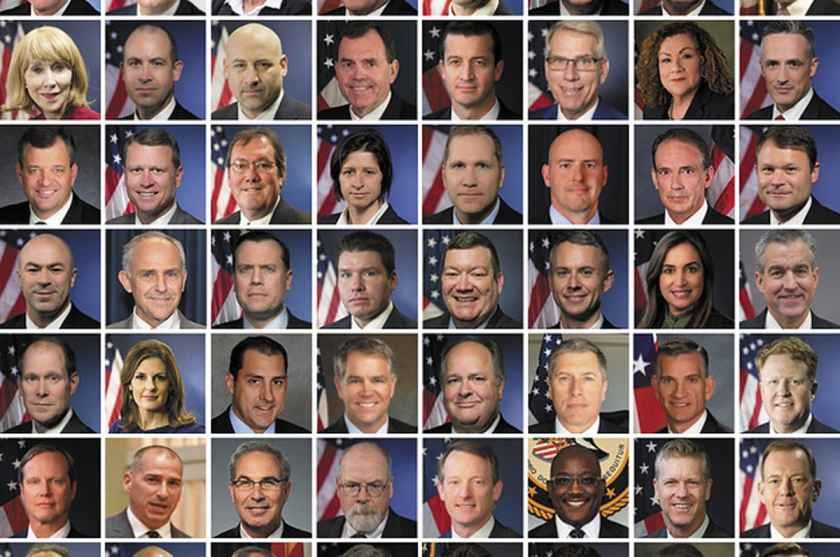The role of U.S. Attorneys is integral to the American legal system, serving as the chief federal prosecutors for the United States government. But one question often arises: How many U.S. Attorneys are there?
To answer this question and provide context about their responsibilities, appointment process, and significance, let’s delve into the details.
The Total Number of U.S. Attorneys
There are 94 U.S. Attorneys in total, representing each of the 94 federal judicial districts across the United States. These districts are geographically distributed to ensure that every state, territory, and federal jurisdiction has a dedicated legal representative to handle federal cases.
Breakdown of U.S. Attorneys by Region
The 94 federal judicial districts are divided into the following categories:
- All 50 States
- Larger states have multiple districts due to their size and population.
- Example: New York has four districts (Southern, Eastern, Northern, and Western).
- The District of Columbia
- A single district that handles federal cases specific to Washington, D.C.
- U.S. Territories
- U.S. Attorneys are also appointed in territories like:
- Puerto Rico
- Guam
- The U.S. Virgin Islands
- The Northern Mariana Islands
- U.S. Attorneys are also appointed in territories like:
This structure ensures that all regions, regardless of their size, receive federal legal oversight.
Roles and Responsibilities of U.S. Attorneys
The duties of U.S. Attorneys extend far beyond merely prosecuting federal crimes. Their responsibilities include:
- Criminal Prosecution
- U.S. Attorneys handle high-stakes cases involving terrorism, drug trafficking, financial fraud, cybercrime, and more.
- They collaborate with agencies like the FBI, DEA, and ATF to bring offenders to justice.
- Civil Litigation
- Defend the federal government against lawsuits.
- Represent federal agencies in disputes over contracts, employment issues, and regulatory matters.
- Appellate Cases
- Handle appeals of federal cases to ensure consistent legal interpretations across jurisdictions.
- Community Engagement
- Work with local law enforcement and community leaders to address crime prevention and public safety concerns.
How Are U.S. Attorneys Appointed?
The process of appointing U.S. Attorneys is highly selective:
- Presidential Nomination
- The President of the United States nominates candidates for each district.
- Senate Confirmation
- The Senate Judiciary Committee reviews nominations, followed by a confirmation vote.
- Term Duration
- U.S. Attorneys serve “at the pleasure of the President,” meaning their terms typically align with the administration of the appointing President. They can be replaced at any time.
- Interim Appointments
- If a vacancy occurs, the Attorney General can appoint an interim U.S. Attorney until a permanent one is confirmed.
Notable U.S. Attorneys in History
Several U.S. Attorneys have left an indelible mark on American legal and political history. Here are some notable examples:
- Robert F. Kennedy (Southern District of New York)
- Later became the U.S. Attorney General and played a pivotal role in civil rights enforcement.
- Rudy Giuliani (Southern District of New York)
- Famous for prosecuting mafia leaders and financial crimes in the 1980s.
- Preet Bharara (Southern District of New York)
- Known for tackling insider trading, corruption, and financial misconduct.
- Eric Holder (District of Columbia)
- Became the first African American U.S. Attorney General, focusing on civil rights and criminal justice reform.
The Importance of U.S. Attorneys
Understanding the total number of U.S. Attorneys provides insight into the breadth of their influence. With 94 districts, each U.S. Attorney plays a critical role in maintaining the rule of law and ensuring justice.
Their importance is underscored by their responsibilities:
- Bridging Federal and Local Law Enforcement: U.S. Attorneys collaborate with local law enforcement to address regional crime trends.
- Upholding National Security: From prosecuting terrorism cases to tackling cyber threats, they are on the frontlines of protecting the nation.
- Ensuring Civil Rights: Many U.S. Attorneys focus on enforcing anti-discrimination laws and addressing civil rights violations.
Challenges Faced by U.S. Attorneys
Given their vast responsibilities, U.S. Attorneys face numerous challenges, including:
- Evolving Crimes:
- Cybersecurity threats, such as ransomware and data breaches, require specialized knowledge and resources.
- Resource Constraints:
- Balancing the workload of high-profile criminal cases, civil litigation, and appeals can stretch resources thin.
- Political Pressures:
- As presidential appointees, U.S. Attorneys may face scrutiny or pressure related to politically sensitive cases.
How to Find the List of U.S. Attorneys
For those seeking the most current list of U.S. Attorneys, the U.S. Department of Justice website is the best resource. This directory includes:
- Names and contact details for each U.S. Attorney.
- Information about their district and areas of jurisdiction.
Many U.S. Attorneys’ offices also maintain their own websites, where they publish news releases, case updates, and community outreach programs.
Future of U.S. Attorneys
As the legal landscape evolves, so too does the work of U.S. Attorneys. Key areas of focus in the coming years include:
- Technology-Driven Crimes:
- Prosecuting crimes involving artificial intelligence misuse, cryptocurrency fraud, and online trafficking.
- Climate and Environmental Cases:
- Enforcing laws against polluters and addressing disputes related to climate change policies.
- Human Rights Advocacy:
- Tackling cases related to immigration, human trafficking, and hate crimes.
The adaptability and expertise of U.S. Attorneys ensure that they remain a cornerstone of the federal justice system.
















